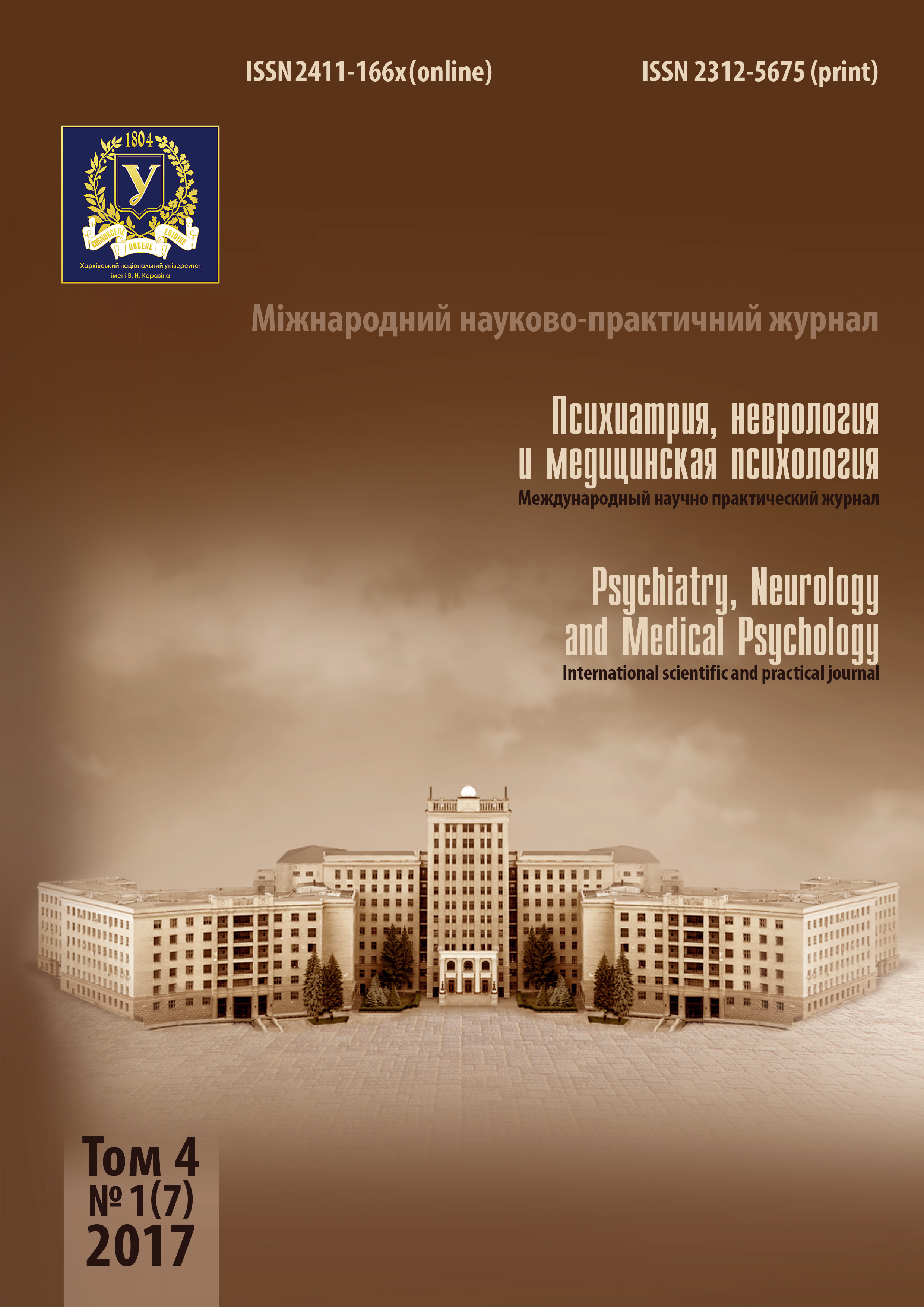Blood Leptin And Psycho-Emotional State In Patients Who Suffer From Chronic Obstructive Pulmonary Disease
Abstract
During chronic obstructive pulmonary disease (COPD) frequent comorbidity is defined as anxiety and depression disorders, which may be caused by resistance of leptin, which is the adipose-derived hormone, and reduction of leptin’s antidepressant and sedative action. 39 patients (18 women and 21 men) who suffered from COPD in the attack phase were examined for the purpose of research to determine the correlation between anxiety symptoms intensity and depression in those patients, depending on the leptin level in blood. Anxiety and depression symptoms were evaluated using the hospital anxiety and depression scale (HADS). It has been discovered that in patients who suffered from COPD along with hyperleptinemia, the anxiety and depression levels were remarkably higher, than in patients who suffered from COPD with normal leptin content, as well as disclosure frequency of clinically apparent symptoms of these disorders, demonstrating the need for making diagnosis of anxiety and depression disorders in such category of patients and, if necessary, to conduct psychological and medical correction
Downloads
References
Фещенко Ю. І. Хронічне обструктивне захворювання легень та супутня депресія – важлива медико-соціальна проблема / Ю. І. Фещенко, Л. О. Яшина, О. В. Поточняк // Український пульмонологічний журнал. – 2013. – No 3. – С. 56–58.
Yohannes A. M. Depression and anxiety in patients with COPD / A. M. Yohannes, G. S Alexopoulos // European Respiratory Review. – 2014. – Vol. 23, No 133. – P. 345–349.
Leptin and ghrelin – the new old players in obesity and depression / R. V. Sandeva, S. M. Mihaylova, G. N. Sandeva // Journal of Biomedical and Clinical Research. – 2014. – Vol. 7, No 2. – P. 75-80.
Plasma levels of leptin in reproductive-aged women with mild depressive and anxious states / H. Yoshida-Komiya, K. Takano, K. Fujimori [et al.] // Psychiatry and Clinical Neurosciences. – 2014. – Vol. 68, No 7. – P. 574–581.
Assessment of leptin and resistin levels in pa-tients with chronic obstructive pulmonary disease / A. Kumor-Kisielewska, D. Kierszniewska-Stępień, T. Pietras [et al.] // Polskie Archiwum Medycyny Wewnet-rznej. – 2013. – Vol. 123, No 5. – P. 215–220.
Metabolic syndrome and major depression / D. Marazziti, G. Rutigliano, S. Baroni [et al.] // CNS Spectrums. – 2013. – Vol. 19, No 4. – P. 293–304.
Is there a role for leptin in the reduction of depression symptoms during weight loss therapy in obese adolescent girls and boys? / J. P. de Carvalho-Ferreira, D. C. Masquio, R. M. da Silveira Campos [et al.] // Peptides. – 2015. – Vol. 6. – P. 20–28.
Leptin is associated with anxiety in women within a wide range of weight / D. Popova, D. Vande-va, F. Tsurakova [et al.] // Archives of the Balkan Medical Union. – 2016. – Vol. 51, No 1. – P. 29–33.
Leptin levels are associated with decreased depressive symptoms in women across the weight spectrum, independent of body fat / E. A. Lawson, K. K. Miller, J. I. Blum [et al.] // Clinical Endocrinology. – 2012. – Vol. 76, No 4. – P. 520–525.
Liu J. Leptin/LepRb in the ventral tegmental area mediates anxiety-related behaviors [Еlectronic resource] / J. Liu, M. Guo, X.-Y. Lu // International journal of neuropsychopharmacology. – 2015. – Vol. 19, No 2. – 11 p. – Way if access : https://www.ncbi.nlm.nih.gov/pmc/articles/PMC4772826/.
Copyright (c) 2017 Олена Мирославівна Радченко, Леся Ігорівна Пилипів

This work is licensed under a Creative Commons Attribution 4.0 International License.

